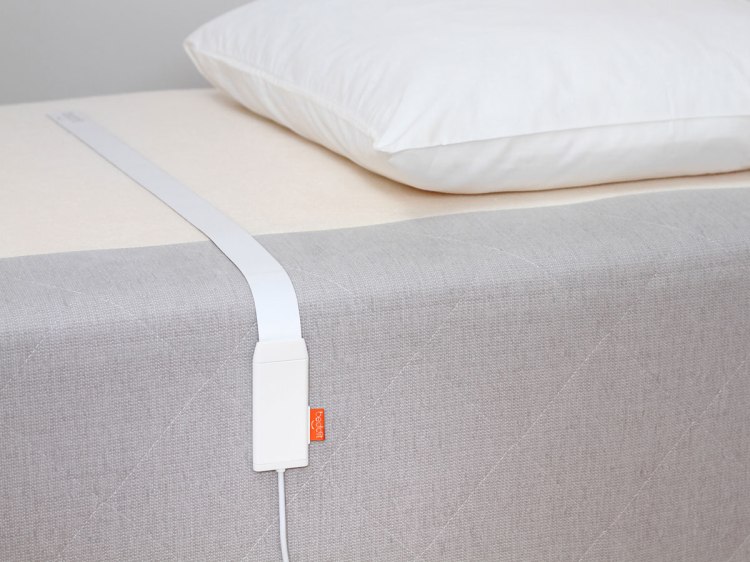When the princess senses something small under her bed in the fairytale “The Princess and the Pea,” it proves that she is, in fact, a princess.
Unfortunately, putting Beddit under your sheets won’t have the same effect, but it could help you sleep better.
Beddit is an ultra-thin sensor that goes under your bedsheets and collects data about your sleep quality, heart rate, breathing rhythm, movement, sleep stages, snoring, and the quality of your sleeping environment.
“Sleep is an essential part of our lives and one of the key factors in our wellbeing. We spend almost a third of our lives in bed,” the company said on its Indiegogo page. “Approximately half of us experience some sort of sleep disorder. Some don’t even notice that their exhaustion is originating from poor sleep.”
Sleep is a core element of wellbeing. Without it, people turn into irritable, unproductive zombies. Or at least I do.
Once Beddit collects data, it presents it on your mobile device in clear reports with a sleep score. It also offers personalized coaching tips and guidance on stress management and lifestyle. The app also includes a wellness diary to track mood, exhaustion levels, and other variables that could impact your rest. The data is tracked over time to help people identify trends and patterns.
The Finnish company is raising money on Indiegogo and has so far pulled in $374,698 (at the time of publishing), surpassing its $80,000 goal to bring Beddit to the commercial market.
Beddit’s medical-grade sleep sensors are already in use in hospitals and sleep clinics and for sleep research and personal training purposes in 19 countries. It was developed in conjunction with the Helsinki Sleep Research Center and VitalMed Sleep Clinic. The team says it has 10 years of experience in “ballistocardiography,” or the scientific method for measuring cardiorespiratory functions.
Beddit attaches to the mattress like a sticker and is plugged into a low voltage USB power supply, so you don’t need to charge it, or really do anything but sleep. Or try to.
The sensors measure the mechanical force caused by heartbeat, respiration, and movements. They use these signals to analyze sleep stage and stress levels. This information is transmitted via Bluetooth to your phone along with atmospheric data about noise and light.
Of course the data could be altered if you share a bed with somebody, but Beddit said as long as they stay on their side of the bed, this shouldn’t be a problem. So note that cuddling is not conducive here. Also, the company notes that a waterbed could present some challenges, but fortunately those have been out of vogue since the late ’80s.
Interesting side note — at their peak, waterbeds made up 20% of the bed market, and Hugh Heffner was rumored to have a king-size waterbed covered in Tasmanian possum hair.
Waterbeds and Tasmanian possums aside, Beddit costs just $99 and will not judge you for whatever your nocturnal proclivities may be.
People, particularly those in the tech community, are rabid for any device that can tell us more about ourselves. Gone are the good ol’ days of meditation, therapy, and a glass of warm milk (which I still think is gross).
Now self-discovery and self-improvement are all about data. Quantified self, wearables, and the Internet of Things are some of the hottest areas of tech right now, and Beddit brings the three together as bedfellows. Insert threesome quip here.
Beddit is not the only company trying to quantify sleep — Retimer, Zeds, Azumio, and Lark are all working towards the same goal, and then there is Shadow, which wants to collect data on your dreams — however it has come up with a sophisticated and elegant solution to a pretty common challenge.


